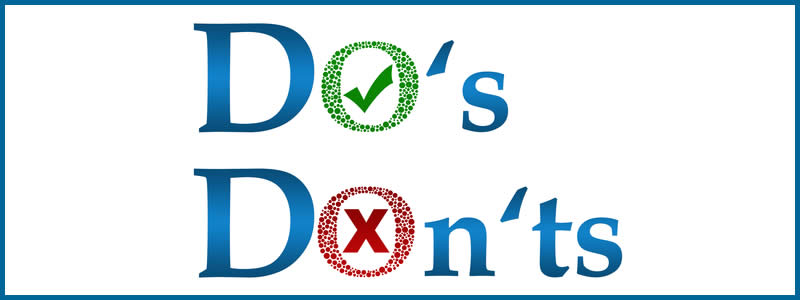 As important as criminal background checks are in hiring the right personnel for your organization, they can actually do more harm than good if you don’t perform them properly. Here are some employee screening “do’s and don’ts” to keep in mind.
As important as criminal background checks are in hiring the right personnel for your organization, they can actually do more harm than good if you don’t perform them properly. Here are some employee screening “do’s and don’ts” to keep in mind.
Do Conduct a National Criminal Database Search
While screening for local convictions will always be extremely important, keep in mind that people do move around from state to state, possibly leaving previous criminal offenses in their wake. For this reason it usually makes good sense to cast your data collection net much wider by making use of a national criminal database. While these databases aren’t always perfectly comprehensive or up to date, you can learn a great deal in a relatively short period of time by running a national criminal background check.
Don’t Profile by Asking About Arrests
Did you know that asking about a candidate’s previous arrests could leave you open to accusations of profiling? The Equal Employment Opportunity Commission warns that arrests cannot be used as a fair bar to employment because of the disparate effect it would have on certain population groups. Instead, ask about prior convictions and pleas of no contest.
Do Give Proper Notice
“Stealth screening” could land your company in hot water. According to The Fair Credit Reporting Act, you have to make it clear that the job candidate will be subject to a criminal background check, and the candidate has to agree in writing before you can proceed. But your responsibility doesn’t end there. If the results of the background check cause you to pass on that candidate, you’re required to explain the reasons, make the report available to the candidate, and provide the contact information of the screening service.
Don’t Leave the Employee Screening Process Up to Interpretation
Establishing a clearly defined and articulated employee screening process is a must for applying fair and consistent hiring standards. Go into detail regarding what kinds of data your HR staff should collect, when it should be gathered, and what means should be used to collect it. Make this documentation required reading for all personnel involved in employee hiring, and have them sign off on revised versions as needed.
Employee screening can be a legal and logistical minefield, so here’s one more “do” — do leave it to an experienced provider of such services. These experts’ tools and advice can help ensure that you select your future workers as fairly and intelligently as possible.
Disclaimer Statement: All information presented is for information purposes only and is not intended to provide professional or legal advice regarding actions to take in any situation.


Leave a Reply
You must be logged in to post a comment.